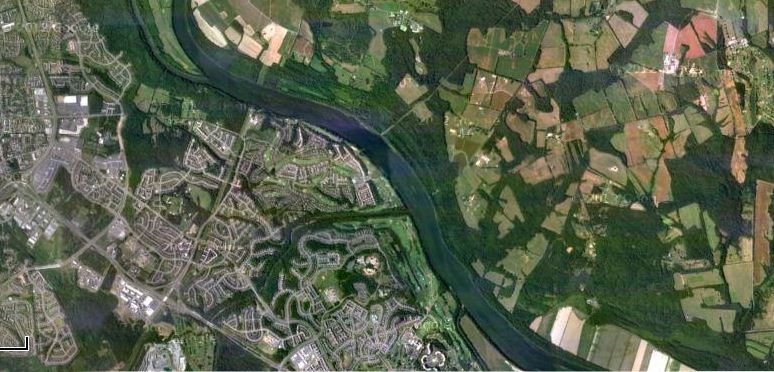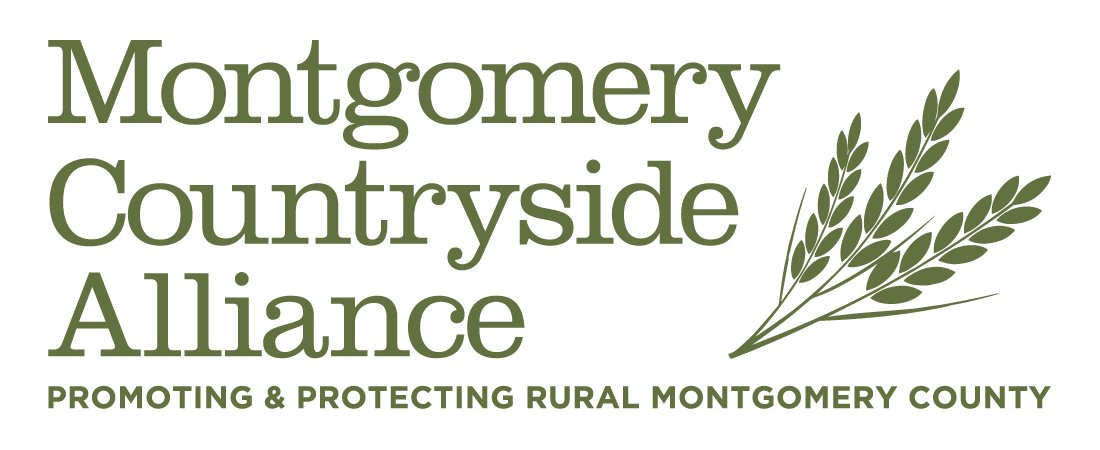Woah - Let's Get This Right
We are working hard to sort out a lot initiatives coming out of Rockville that will need some work. And we could use your action. Your voice matters.
These three zoning text amendments are problematic as written:
- ZTA 18-03 Alcohol Production and Event Facilities in Reserve and all Rural Residential Zones
Recommend: Approval with amendments
Proposed amendments include: ensuring that there is a required farming component of the business, providing for conditional use process for facilities that will hold large weddings and events, providing for clear hours of operation, lighting standards, providing for applicable forest and water protection standards. - ZTA 18-01 Commercial and Community Solar Arrays (2 mgw – covering up to 12 acres) in Rural Residential Zones Recommend: Approval with amendments
Proposed amendments include: reduce array height from 20’ to 10’, provide for larger buffer to property line, slightly taller security fencing and address the need to ensure that the provision advanced the stated goal of solar availability to low and moderate income residents through Maryland’s Community Solar Program. MCA and partners are opposing the request to add the Reserve to the zoning change prior to a comprehensive renewable energy plan, which should be part of a larger climate change response plan… one that we do not have. - ZTA 18-04 Expansion of non-conforming grandfathered uses in Reserve
Recommend: Approve With Amendment (dated May 2)
Our understanding is that this amendment aims to ensure that Davis Airfield in Laytonsville complies with current FAA requirements. As currently written, the amendment will allow for expansion of all non-conforming uses existing prior to 2014, including but not limited to schools, cemeteries, industrial uses, landscape contractors, airfields etc. This conflicts with the zoning and master plan.
There is a another issue we are carefully tracking: In late June, a final Council vote is expected on the Ten-Year Water and Sewer Plan. At issue are the rules by which the County switches a property or cluster of properties from septic to sewer service. Since sewer lines may promote sprawl and urbanization which damages clean water supplies, it's crucial that we keep unnecessary sewer lines out of the Ag Reserve and its low-density residential buffer.
BCC: [email protected]
Dear Council and Planning Board Members,
I support the continued careful stewardship of our County’s rural and agricultural land and communities. In keeping with that goal, I am writing to ask that you take the following actions:
1. ZTA 18-03 Approve with MCA recommended amendments
2. ZTA 18-01 Approve with MCA recommended amendments
3. ZTA 18-04 Oppose
I support the collaborative efforts of Montgomery Countryside Alliance and partners in working toward legislative amendments that will ensure that zoning changes are supportive of our master plans, environmental protection, and will advance a vital and diverse agricultural and rural economy. Please engage in careful planning for the County’s renewable energy and climate change response goals prior to major zoning changes that will affect other preservation efforts. I do not support extension of commercial solar array installations in the Ag Reserve, beyond the current provision of 120% solar generation, before the County conducts planning.
Thanks for your consideration.
Moreover, I thank the Councilmembers (Hucker, Berliner, Riemer, Elrich, and Navarro) who voted on March 20 in a straw vote for the Elrich Amendment to the County’s 10 Year Water and Sewer Plan. We urge these Councilmembers and their colleagues to vote for clean water in the final vote in June.
Thanks for your consideration.
Sincerely,
<your name here>
Our recommended actions relating to these 3 zoning text amendments address three primary areas of concern:
2) Minimizing and mitigating impact on and safety of environment, communities, and stakeholders
3) Ensuring that the Reserve remain economically viable, and indeed, allows expansion of diverse agricultural enterprises.
1. A Place with Purpose: Compliance and Consistency with the Master Plan
The Master Plan for the Preservation of Farmland and Open Space (AROS) focuses on both the preservation of farmland, and through TDR, BLT and a number of easement programs and expenditure of millions of private and taxpayer dollars, has provided for “economic incentive to the continuation of farming” AROS Foreword. Moreover, the AROS clearly outlines the public purpose served through protecting agriculture and open space: “control of public costs and prevention of urban sprawl, adherence to County growth management systems, preservation of regional food supplies, energy conservation, protection of the environment, maintenance of open space, preservation of rural life-styles.” AROS p. 27
The AROS was designed with flexibility, acknowledging the evolving nature of agriculture, allowing for revisions and additions. However, those changes must conform to the primary purpose of the plan, adhere to environmental protection goals, and be “consistent with historical character and community lifestyles in rural settlements.” AROS p. 71
Note that our proposed amendments serve to address this area of concern.
2. Impacts and Safety: In the Public Interest
Ensuring that the changes that result from zoning text amendments remain in relative scale and harmony with existing farm operations, other agritourism activities (currently being discussed in Planning Department. appointed multi-stakeholder committee), natural resources (forests, streams, habitat protection,wetlands, drinking water aquifer), rural infrastructure and rural communities is the goal of our proposed amendments to these ZTAs.
3. The Reserve Through an Economic Lens: Striking Balance
Stewarded carefully, the Reserve will host a diverse group of agricultural businesses and activities for many years to come, better withstanding the cyclical difficulties that occur in any concentrated type of production – a healthy and diverse ag portfolio if you will. The most recent 2012 US Census data reveals the trend toward smaller farms and more products sold directly to local consumers. Beginning farmers reporting their primary occupation as farming has increased by 11.3% from 2007-2012. There has been a significant increase in women and minority farm ownership. We have seen these trends here in Montgomery County, with notable and welcomed growth of successful new small scale, niche farms operating through the assistance of the County’s New Farm Pilot Program, Extension services, and Land Link Montgomery. The County’s residents’ hunger for locally grown food and fiber continues to grow, providing incentive for new and expanding operations. These businesses also give back to their community through programs such as Manna’s Community Food Rescue. Access to affordable farm acreage remains a challenge and thus ensuring that we do not tilt the landscape too far toward non-agricultural accessory uses or unrelated industrial uses (such as event facilities and large scale solar arrays) that greatly drive up land cost is critical. Providing a fair and clear set of standards that ensures equity, enforceability, and that does not undermine other agricultural pursuits is key.
Questions? Write or call us: [email protected] - 301-461-9831







